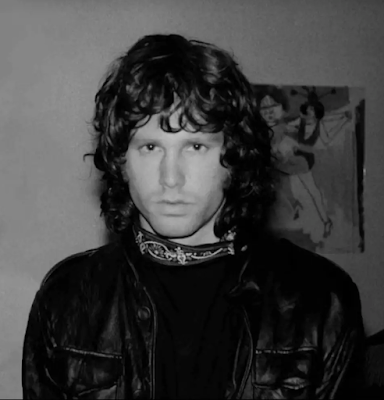JIM MORRISON INTERVIEWED ON NOVEMBER 6, 1969: THE HIGHLIGHTS
In his interview with Howard Smith of the American newspaper "The Village Voice" on 6 November 1969 (link here), J
We will discover opinions, inclinations and attitudes of this
extraordinary musician, which are often overshadowed by his more striking and bold
behaviors.
The interview took place at the beginning of the recording sessions of
The Doors' fifth LP, "Morrison Hotel". At the same time, the band's
previous work ('The Soft Parade') and the group’s internal tensions of the past
year were disappearing from the singer’s horizon.
However, the trial he was about to face due to complaints made against
him during a concert in Miami on 3 March 1969 loomed large.
The reporter's lack of ability to ask interesting questions irritates
Morrison, resulting in a series of deliberately meaningless answers. This,
coupled with some of the frontman's opinions being softened so as not to
aggravate his already precarious legal position, means the interview is not as
thrilling as it could have been.
The conversation lasts about an hour, but a significant portion of the
allotted time is taken up by sharp banter (superficial questions versus jokey
answers) or Morrison's deliberate prolonging of silences.
So, here are some highlights from the 6 November 1969 interview with Jim
Morrison.
JIM AND THE SOUTH
The interview begins with a topical question: What is Morrison's opinion
about the film 'Easy Rider', which had been released a few months earlier and
was already having a significant impact in the USA?
His answer is puzzling. Morrison calls the movie a "grotesque
parody" of the American South, a geographical and cultural region he
appreciates: "I dig the South".
Furthermore, The Doors’ frontman adds that 'Easy Rider' exaggerates the
intolerance that characterizes the Southern states and that he has never
witnessed events similar to those depicted in the film.
Anyway, he admits that he may be biased in his judgement of the film
because he is also from the South.
This last remark seems to reflect his fascination with the American
South more than the problematic socio-political reality of the time. After all,
the blues was the region's main musical form and a genre he loved (he drew on
it for the lyrics of several The Doors’ songs, including "Roadhouse
Blues", "L.A. Woman" and "The Wasp".
PAST
Of all the questions about the singer's past, one of the most
interesting concerns the photo shoot in the summer of 1967, for which he posed
shirtless in a series of provocative and daring poses which would later become
iconic in rock imagery.
More than two years after the shoot, Morrison unequivocally rejects
those moments. He emphatically states that he must have been "out of his
mind" to pose for such photos, adding that he never wanted to be a sex
symbol.
In line with the new image he was presenting in the second half of 1969,
he adds that he would absolutely not do it again if he could go back, but
unfortunately those shots can no longer be destroyed.
FUTURE
Looking to the future, Morrison anticipates The Doors concerts in New
York (Felt Forum, January '70) and says he would be willing to go to Japan and
Australia if the opportunity would arise.
The most important question regarding his future, however, is a
different one: "How long are The Doors going to last?" asks
Howard Smith. "I have no idea, maybe another seven or eight years, but
after that I don't know" was the singer's fatefully wrong answer.
MUSIC
Finally, let’s turn to the part of the interview that deals with music.
Morrison's defense of 'Hello I Love You', written in 1965 and criticized
by some as too superficial and commercial, comes as no surprise. The author's
point, which is fully acceptable, is that the lyrics are meaningful and
different from the usual words of love used in many other songs.
We conclude this account with the music Morrison preferred in November
1969. In response to this question, he mentions three artists: the bluesmen of
the past, and the classical composers of the first half of the 20^(th) century,
Igor Stravinsky and Anton Webern. These last two choices represent a
challenging listening experience and add a reflective dimension to the profile
of this multifaceted artist.
P.S.: My book "The Doors Through Strange Days"- The most comprehensive journey ever made through The Doors' second LP, is out and available on Amazon.com, uk, mx, ca, it, etc.
Here’s a link:




Comments
Post a Comment